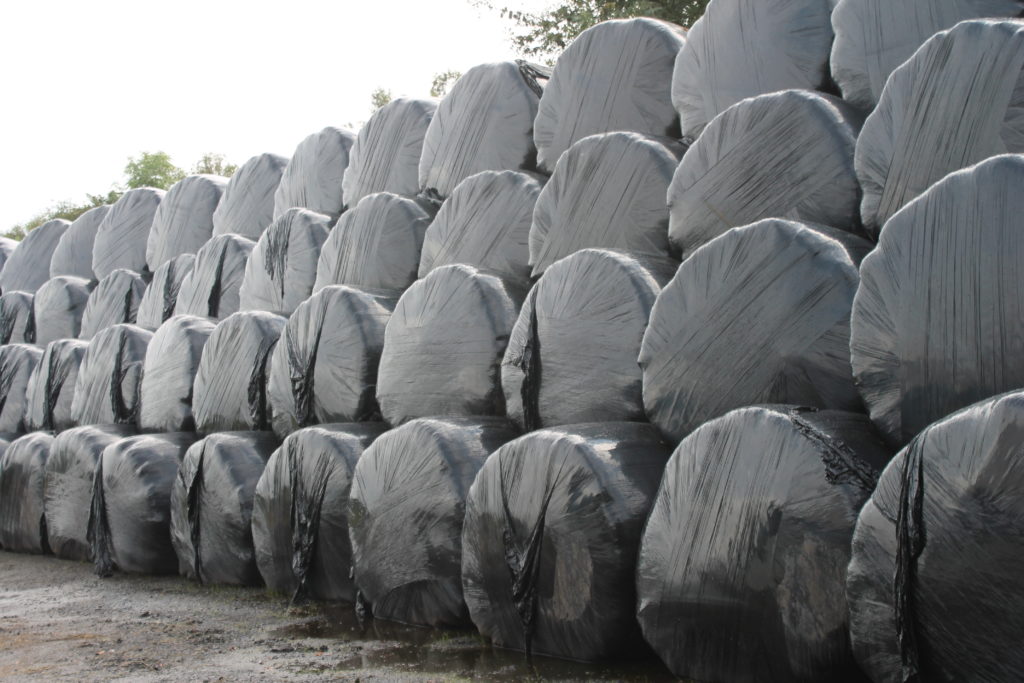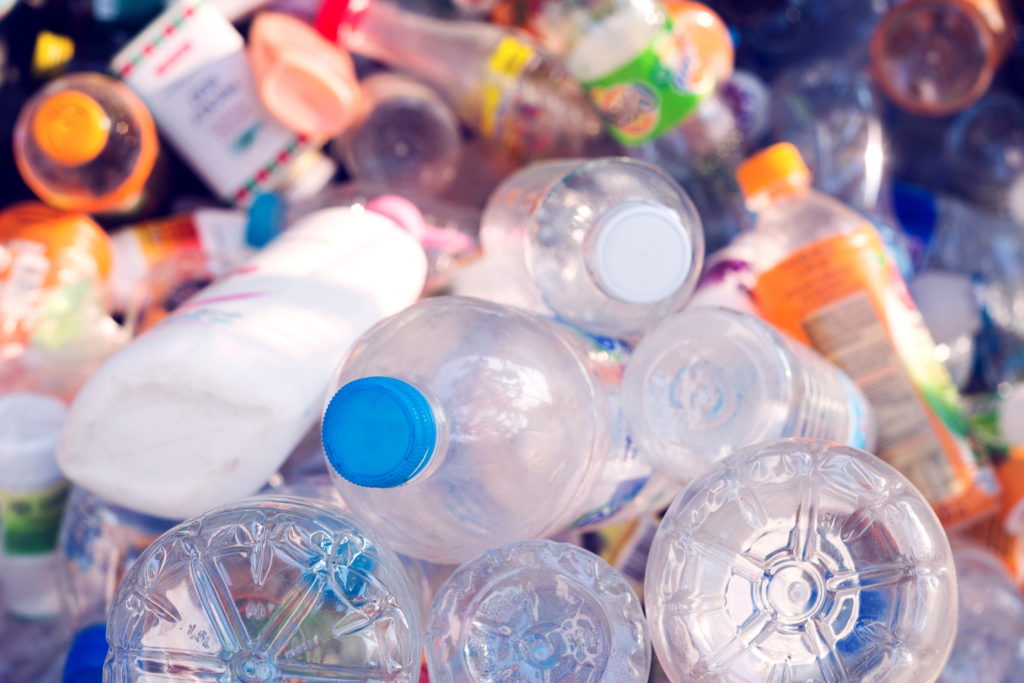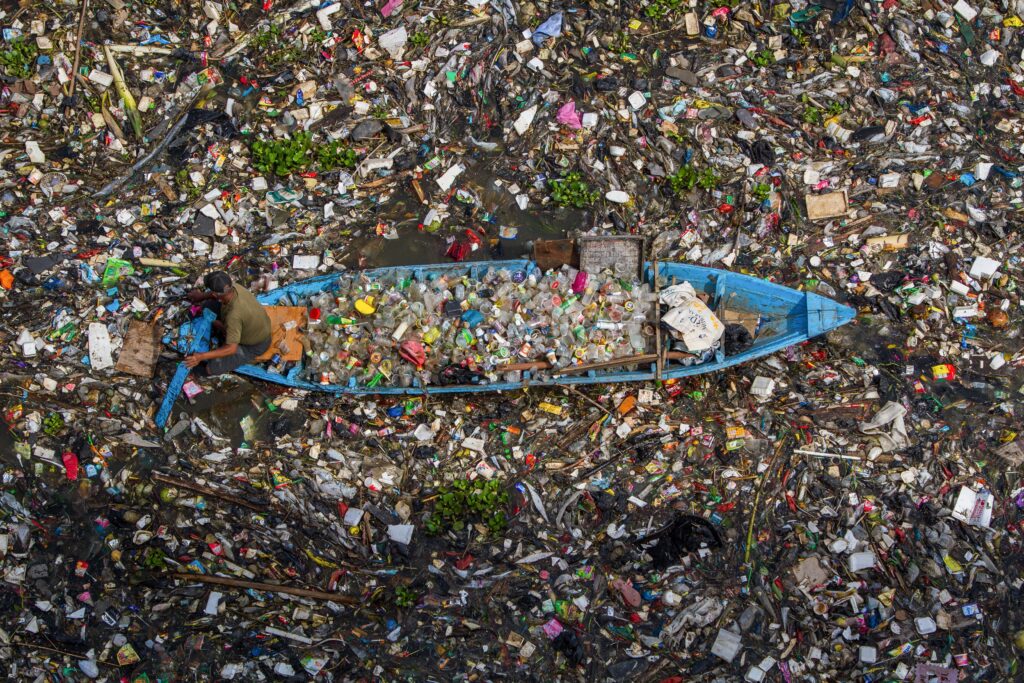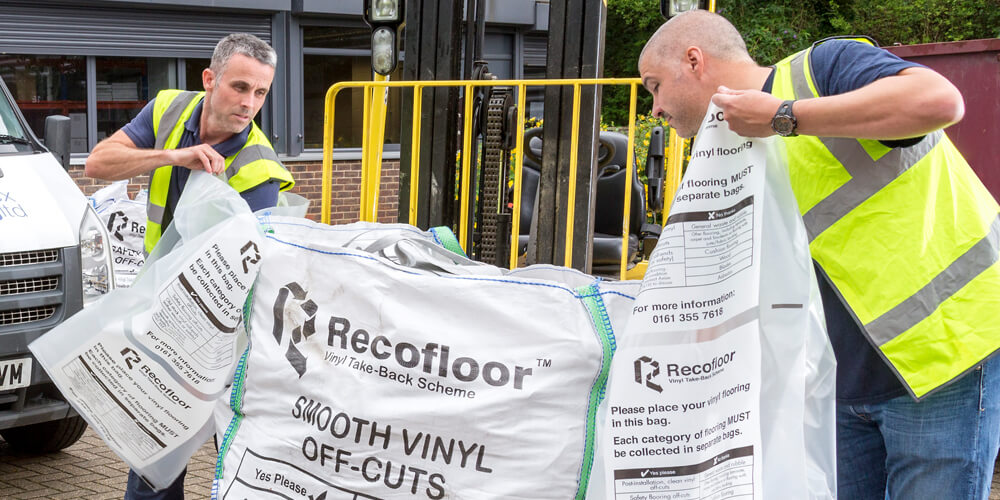Secretary and Treasury minister, Helen Whately MP warned that an exemption, would “undermine” efforts to reduce environmental harm from plastics. And, she said the tax was different from Defra’s producer responsibility obligations.
In a debate in parliament yesterday (19 January), Ms Whately faced calls to reverse guidance published by HMRC just after Christmas, which included silage film in scope of the tax (see letsrecycle.com story).
This guidance coupled silage film with film designed to protect produce, such as film around raw meat, and said it would be in scope of the tax.
Silage film is used by farmers to preserve silage, hay and maize. It is largely used in the winter to preserve crops for livestock. So far it has generally escaped environmental charges which have been imposed on packaging system through PRNs.

Large volumes of the film are recycled and there have been efforts to introduce a collection scheme for the material, with two rival schemes set up in 2019 (see letsrecycle.com story), but it is viewed by some as contaminated and expensive to collect and recycle.
Farms
The debate in the House of Commons was secured by the Conservative MP for Amber Valley Nigel Mills, who says he has a number of farms in his constituency and also plastics specialists Berry bpi.
He accused HMRC of “sneaking out” the guidance to include silage films, saying it was “unexpected” and the costs will fall directly on to farmers.
His argument for the guidance to be withdrawn consisted of four points.
1) The primary purpose of silage film is not packaging—it is to ensure that harvested grass can be fermented into silage
2) Extending the charge to silage film will not generate more use of recycled material in the film
3) “I am not sure that silage film falls within the definition of the measures that were introduced in the Finance Act 2021, so the guidance is incorrect”
4) This is “seriously damaging for our farming industry at a difficult time”
Mr Mills argued that the film should not be considered packaging, and pointed to an Environment Agency paper in 2021 which “accepts that the primary function of silage wrap is producing the product”.
We are taking a sledgehammer to crack a very small nut here
- Douglas Ross, Scottish Conservative MP for Moray
Backing
Fellow Conservative MPs Robbie Moore and Douglas Ross were supporting Mr Mills.
Mr Ross said agriculture accounts for only 3% of plastic use across the United Kingdom, that silage film is just a small proportion of that, “and therefore that we are seemingly taking a sledgehammer to crack a very small nut here”.
Mr Moore also said that silage wrap is clearly not a packaging product.
There has been substantial consultation and engagement
– Helen Whately, Treasury minister
Minister
In response, Ms Whately said while she has “listened carefully” to the points, she rejected claims that the guidance came as a surprise.
The Treasury minister added that the definition for the plastic packaging tax covers products designed to contain, protect, handle, deliver or present goods at any stage in the supply chain. She explained that “unlike Defra’s responsibility obligations”, the tax includes goods that meet that definition even if they are used by an end user.
Ms Whatley then remarked: “As we attempt to reduce the use of non-recycled plastic and the amount of plastic overall that ends up in landfill, it is right and it makes sense for the Government to include the use of plastic for silage in the tax”.
She concluded by saying that if the government exempted silage wrap and similar items, such as pallet wrap and cling film, “we would be shying away from dealing with the overall challenge posed by the use of plastic packaging”.
Packaging
While HMRC has said silage wrap will fall under the scope, it does not county as packaging under the PRN regulations, and it is illegal to issue a PRN on the material. It is often cited as a material illegally exported.
However, the minister said while she doesn’t dispute that the film is part of the process of turning grass into silage, that does not exempt it from falling within the definition for the tax.
She said: “That definition is targeted so that it does not include plastic packaging products that are essential for goods to be used, in contrast to products that are essential for goods to be manufactured.
“Therefore, products such as tea bags, coffee pods, inhalers and lighters are not taxable because the product contained by the packaging simply could not be used by the end user without the packaging. However, that is not the case for silage film”.










Subscribe for free